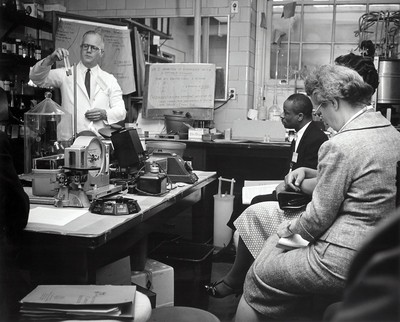Why do nurses need NPI?
Perhaps you are studying or have already graduated in nursing services? Either way, you will need to get a lot of certifications and licenses before you start your practice, including if you will be prescribing medication therapy to your patients as part of your job. In addition, nurses must also obtain NPI. Let’s understand what this is and why nurses need it.
National Provider Identifier: What is it and what is it for?
The National Provider Identifier, or the familiar acronym NPI, is a 10-digit number that is assigned to those who provide health care services, in other words, the providers of those services. These providers include certain institutions, as well as individual specialists or groups of specialists. They can be nurses, social workers, caregivers, home health aides, or just looking after patients, all of whom must have NPIs. But janitors or other health care workers who don’t provide medical care are exempt from getting NPIs.
If you change where you live or where you work, your NPI still remains the same.
Prior to 2006, the NPI was not used, which led to coordination problems, and there was no universal way to identify those who provide different kinds of health care services. Since the NPI was introduced, the situation has changed dramatically. Now all providers can use NPI to identify themselves or other health care providers when they enter into transactions or correspondence, and insurance companies can use NPI to process claims. On top of all that, these identifiers are used when you need to identify providers in electronic patient records.

Is NPI confidential?
Because the online registry includes not only the employee’s NPI, but also information about work address or licensure, for example, the provider’s NPI is not confidential.
How does a nurse get an NPI?
First, note that applying for an NPI is quick and free. What do you need to do?
Go to the NPPES website. Follow the instructions to create a login.
Enter all necessary information, including your license, and submit your application.
What items are included in the registered nurse description?
- Creating and implementing a patient’s nursing care plan.
- Assessing a patient’s complexities and needs.
- Nursing care for certain groups of patients, including trauma patients, those in recovery, or those unable to care for themselves.
- Ability to advise patients on health-related issues, as well as maintain patient files.

History of NPI
NPI (national provider identifier) is a medical breakthrough. In this article, you will get a closer look at this concept: history of NPI number, meaning of NPI number.

How to obtain, renew, or terminate an NPI
Every health care provider, whether it’s a hospital, pharmacy, or individual specialist, must obtain their own NPI number. This identification number is unique and is assigned upon application. In today’s article, let’s break down how to file this application to get your number and what you need to do to update it or eliminate it if necessary.

Do students and interns need an NPI number?
Each health care provider is assigned a unique identification number — NPI. All health care providers are eligible for this number. They can be various medical organizations, hospitals, pharmacies, nursing homes, or specialists who provide certain services — dentists, therapists, podiatrists, ophthalmologists, and others. Students who are educated in the field of medicine, as well as interns, can apply to get their NPI. Accordingly, each of them can apply because they are also health care providers. Here’s an example. Let’s say you are in the athletic training department to later become a health care provider. In this case, you must not only have an understanding of what NPI is and what it’s for, but you must also get it. Therefore, you can apply for an NPI today.

NPI number: what is it?
The NPI, or National Provider Identifier, is a non-repeatable number for health care providers. The NPI always consists of 10 digits and is used for administrative and financial procedures. The NPI was introduced in 1996 to make electronic health records more efficient. The fact is that the most common error in billing for medical care in an area is to have the wrong NPI number or no NPI number at all. Thus, it is simply not possible to pay for the service.